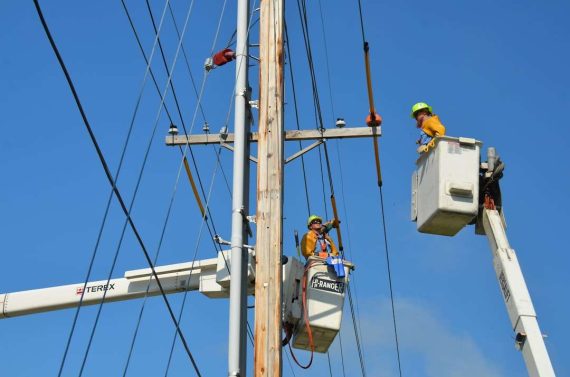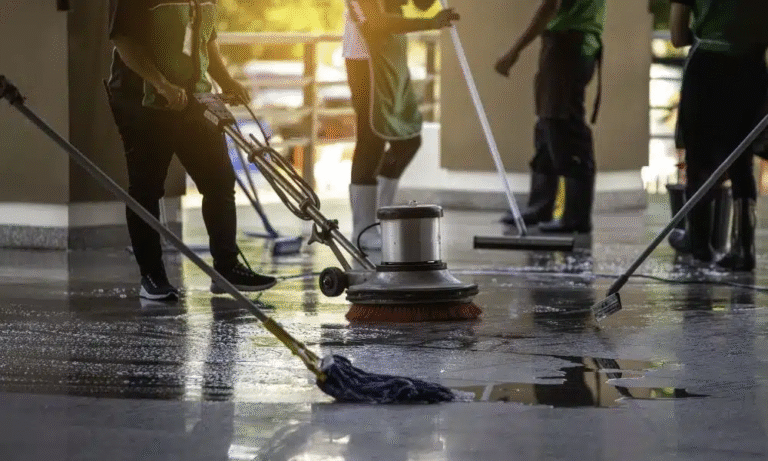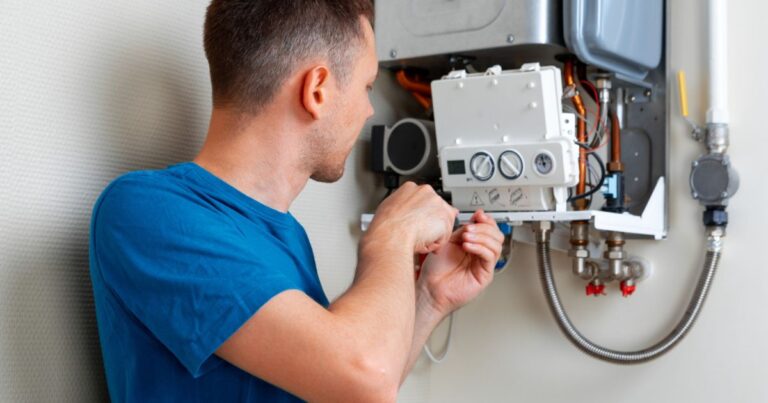How to Choose a Commercial Contractor – A Simple Guide for Business Owners!

Choosing the right commercial contractor can make or break your project. Whether you’re building a new office, remodeling a retail space, or expanding a warehouse, the success of your project depends heavily on who you hire to lead the work. A good contractor keeps things on time, on budget, and built to last.
But with so many contractors out there, how do you know which one is the right fit for your job?
In this guide, we’ll walk you through everything you need to know about how to choose a commercial contractor. We’ll break it down step-by-step, in a way that’s easy to follow — even if you’ve never hired a contractor before.
What Is a Commercial Contractor?
First, let’s get clear on what a commercial contractor actually is.
A commercial contractor is a professional who manages construction projects for commercial properties — like offices, restaurants, hospitals, hotels, warehouses, or shopping centers. Unlike residential contractors (who build or renovate homes), commercial contractors work on larger, more complex buildings that follow strict building codes and regulations.
They’re responsible for:
- Project planning and budgeting
- Hiring subcontractors (electricians, plumbers, etc.)
- Getting permits and licenses
- Ensuring work meets safety and legal standards
- Keeping the job on schedule
Now let’s dive into the steps for choosing the right one.
Step 1: Define Your Project Clearly
Before you even speak to a contractor, you should have a clear idea of what you want. Ask yourself:
- What type of commercial property is this?
- Is this new construction or a remodel?
- What’s your budget?
- What’s your timeline?
The more details you provide, the better a contractor can estimate costs and offer accurate advice.
Step 2: Look for Contractors with Commercial Experience
Not every contractor has the same experience. Make sure you’re looking at contractors who specialize in commercial projects.
Ask to see:
- Past commercial projects (photos, portfolios)
- Types of buildings they’ve worked on
- Industries they’ve served
You wouldn’t hire a residential roofer to build a hospital wing, right?
Step 3: Check Licenses, Insurance, and Certifications
A trustworthy commercial contractor should be:
- Licensed to operate in your city or state
- Insured (liability insurance and workers’ compensation)
- Certified, depending on your location or type of project
This protects you in case of injuries, damage, or legal issues.
Pro tip: Ask for proof of insurance and double-check their license number with your local contractor licensing board.
Step 4: Ask for References and Reviews
Any contractor can say they’re the best — but what do past clients say?
- Request at least 3 references from recent commercial projects
- Contact those references and ask about communication, timelines, and overall satisfaction
- Read online reviews on Google, Yelp, or the Better Business Bureau
Look for patterns. If multiple people complain about delays or budget overages, take note.
Step 5: Compare Multiple Bids (But Don’t Automatically Choose the Lowest)
It’s smart to get at least 3 bids for your project. This helps you understand the market rate and gives you negotiating power.
But don’t go with the cheapest just to save money.
A low bid may mean:
- They cut corners
- They use low-quality materials
- They’re desperate for work
Instead, compare:
- Price
- Materials
- Project timeline
- Warranties or guarantees
Choose the contractor that offers the best value, not just the lowest price.
Step 6: Evaluate Communication and Professionalism
You’ll be working with this contractor for weeks or months. Good communication is essential.
Pay attention to:
- How fast they respond to emails or calls
- Whether they explain things clearly
- How well they listen to your needs
A contractor who’s hard to reach now may be even harder to work with once the project starts.
Step 7: Get Everything in Writing
Before any work begins, you must sign a written contract. This should include:
- Project scope
- Timeline
- Materials to be used
- Payment schedule
- Penalties for delays
- Warranties
A professional contractor won’t hesitate to provide a clear contract. If they resist, that’s a red flag.
Step 8: Check Their Project Management Process
Ask how they manage their projects:
- Do they use software to track progress?
- Will there be a dedicated project manager?
- How often will they update you?
This shows their level of organization and how seriously they take the job.
Step 9: Visit a Current Job Site
If possible, ask to visit one of their active job sites. This tells you a lot about how they work.
Look for:
- Safety precautions
- Clean and organized workspace
- Workers following rules and wearing safety gear
If the site looks chaotic or unsafe, that’s a red flag.
Step 10: Trust Your Gut
Lastly, trust your instincts. If something feels off — even if everything looks good on paper — it’s okay to walk away.
A contractor should make you feel confident, heard, and supported.
Top Mistakes to Avoid When Choosing a Commercial Contractor
Here are a few common mistakes business owners make:
- Choosing based on price alone
- Not checking references
- Failing to get a contract
- Ignoring communication red flags
- Skipping license and insurance checks
Avoid these, and you’re already ahead of the game.
5 Common FAQs About Choosing a Commercial Contractor
1. What questions should I ask a commercial contractor before hiring?
Ask about their experience, licenses, insurance, past projects, timeline, cost estimate, how they handle delays, and how they communicate with clients.
2. How do I know if a commercial contractor is legit?
Make sure they’re licensed and insured, have a professional website or portfolio, provide references, and have good reviews online.
3. What’s the average cost of hiring a commercial contractor?
It depends on the size and complexity of the project. Most contractors charge per square foot or provide an overall estimate. Always get multiple bids for comparison.
4. Should I hire a general contractor or separate subcontractors?
A general contractor manages everything and hires subcontractors for you. This is ideal for commercial projects where coordination is critical.
5. How long does a typical commercial construction project take?
Timelines vary, but small renovations might take a few weeks, while full construction projects could take several months. Always ask for a detailed schedule up front.
Conclusion
Choosing the right commercial contractor is a big decision — but it doesn’t have to be overwhelming. By doing your homework, asking the right questions, and trusting your instincts, you can find a contractor who brings your vision to life without unnecessary stress.






